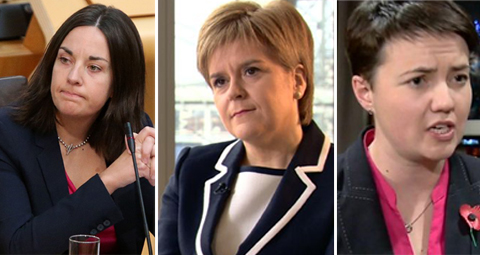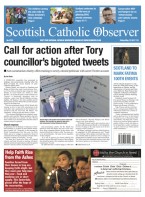May 12 | ![]() 0 COMMENTS
0 COMMENTS ![]() print
print

Please stop ‘playground politics’
ANTHONY HORAN despairs at the childish level of political debate in the election campaigns
VERY few people appear elated at the prospect of another general election. Indeed there are millions of ‘Brendas from Bristol’ out there positively dreading another visit to the ballot box and all that it brings. Yet despite the number of elections and referenda in the UK in recent years bordering on the ridiculous, voting is perhaps the easiest part of the whole process.
What people maybe find frustrating and tiresome is the nonsense that has become the rather unwanted travel companion of elections: political candidates and their cohorts ceaselessly criticising and blaming one another, and trying to score childish political points across social media platforms.
I’m certain there is a place for criticising the opposition in election contests and even in day-to-day parliamentary business; accountability is, after all, an essential element of the proper functioning of the democratic process. But all too often it descends into tit-for-tat playground squabbling where, no matter how much an individual politician might actually agree with their opposite number, misplaced pride stops the adult in them from reaching a consensus.
Why on earth would one do the sensible thing and agree with a political rival when there is an opportunity to score a few party political points and to publicly harangue? I have come across many instances of playground politics as I monitor the work of both the UK and Scottish parliament and government, and while most politicians behave in a manner befitting their important office, too many fall prey to the urge to unjust criticism and adolescent baiting along party lines.
All too often I see a lack of humility as countless debates, peppered with taunts and insults, end in stalemate. This is not the kind of politics we want to see. We want the kind of politics that, while allowing for healthy argument and debate, always has as its ultimate goal the common good of society. Many of our politicians today have yet to convince us that this is a view they share.
This election is an opportunity for us to not only challenge candidates on the big ticket issues, but also to challenge them on the type of politics we want to see in our country in the future.
For example, how do candidates intend to behave in their everyday political business, including their behaviour on social media platforms?
It’s one thing for a politician to have a Twitter or Facebook presence in order for them to keep connected to their constituents and to convey useful information about local and national issues affecting them, but it’s another thing altogether when their social media ramblings descend into the type of behaviour we would expect to see in the playground.
There is endless points scoring, and an inordinate amount of energy is spent on bringing down other candidates and other parties, often using inappropriate language and imagery in the process.
Too many politicians have bought into the ugly side of social media and their continued participation in it benefits nobody. If politicians insist on having a social media account then perhaps they should use it only for the sharing of relevant information and for issuing positive messages around campaigns.
Maybe they ought to resist the urge to enter into social media debates with other politicians, leaving that to a more appropriate forum.
Debates on social media tend to descend into farcical, putrid, verbal ping-pong and it achieves nothing.
It also encourages people with extremist views to enter the debate and we are left with a thread full of hate which more often than not results in abuse and even threats of violence. It’s childish, it’s ugly, and it’s no place for political dialogue.
As we question candidates ahead of this election, challenging them on important issues like the right to life, eradication of poverty and religious freedom and conscience, we should also consider questioning candidates on how they plan to approach their parliamentary work. Will they do so in a spirit of humility with the aim of constantly working for the common good? Or will they fall into the trap of playing politics, playground style?
We can but hope that this election, and the parliamentary session which follows, will be different to those that have gone before.
Anthony Horan is the director of the Catholic Parliamentary Office.











